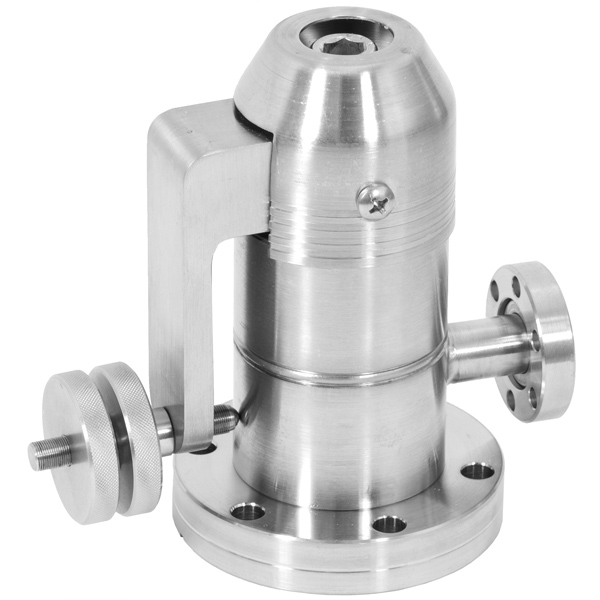| Table of Contents |
|---|
general intro
valves come in many shapes, sizes, and flavors.
they can be hand cranked or controlled remotely
opening hand operated valves:
open the valve all the way, turn it back just a little, so it can turn both ways.
a closed valve handle wont turn in at least 1 direction, if not both.
a open valve can turn in both directions if it's not fully fully open.
if you find a valve that turns freely in both directions, you know it's open.
leave open valves with room to wiggle the knob.
seals: rubber O-ring
...
VS all metal
...
(see seals page)
O-ring: relatively cheap, easily replaceable, gas permeable, hydrocarbon outgassing
Metal: expensive, challenging to replace/repair, tightest seal, clean
valve types
gate valve
opens and closes like a castle gate, allows things (like xray beam) to pass straight through.
big cylinder on top is where air moves the valve from.
angle valve
(AKA corner valve AKA right angle valve)
how to open/close
best learning will be practice: ask someone to guide you in opening and closing these valves at least once.
closed open
another design. subtle and backwards:
closed open
open is closed, in is out. makes perfect sense.
vent valve
...
used to vent gas into the chamber
metal seal rubber seal
more niche valves
pressure release valve (PRV)
for pressurized gas
passively let's gas out above a set pressure
can't be actuated
leak valve
an unusual valve, only found in very specific applications, used to vent gas into chambers at a very precise and slow rate
solenoid valve
electrically controlled valve
valves actuated by compressed air have solenoids to let the air in and out.
Fast Valve
a type of automatically closing gate valve used in safety systems. closes fast, in the order of a second.
Isolation Valve
pressure release valve
...
i forget what this is
a main vendor: VAT valve




